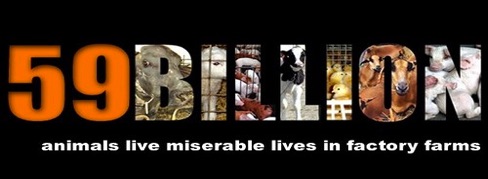


FOLLOW
FAQ’s



CHOOSE VEGAN is funded entirely by public donations. Animals depend on your generosity to continue vital work to expose and end animal abuse. Thank you for helping to free animals from cruelty.
FREQUENTLY ASKED QUESTIONS (FAQ’s)
Common questions people ask about being vegan.









ABOUT US
MEDIA
CONNECT
SUPPORT
Choose Vegan
the voice for animals

Human nature includes traits such as stealing and lying - this doesn't make these morally right. Humans hunter-gatherers have found from 10% to 90% of their food from plants. Wise food choices can add ten healthy years to our lives, and people who don't eat any meat live longer than average. The human animal has evolved to be able to eat plants, fungi and meat. We have also evolved the ability to understand the suffering of others, and the consequences of our choices.

Aren't humans naturally meat eaters?
Does not god intend us to eat meat?
How did the word vegan come about?
How do i identify animal free foods?
Other animals kill for food, why should not we?
What about people, like the Inuit, who must eat, meat because of the environments they live in?
What do you think of animal rights “extremist”?
What is vegan?
What is the difference between vegan and vegitarian?
Why do people choose to be vegan?
Would you kill a wild animal if your life was threatened?



There are varying views on this subject. Some Christian groups promote a vegan diet; there are Christian, Jewish and Muslim Vegetarian Societies; many Jains, Hindus and Buddhists are vegetarian.
It is the beginning and end of the word, 'vegetarian'. It was coined in the UK by Donald Watson in 1944 when The Vegan Society was founded. It symbolises that veganism is the logical conclusion of the vegetarian journey to good health without the suffering or death of any animal.
It is easy to avoid meat (including poultry and fish), eggs, milk, cheese and honey - and foods listing these as ingredients. This achieves most of the potential benefit to animals.
Other names that animal products go under include: gelatine - from animal bones; whey and casein - from dairy; and carmine - a red colour from crushed beetles. The Vegan Society pocket-sized book "Animal Free Shopper" explains these names, and lists many common foods and products that as far as we can tell are animal-free. Many manufacturers label foods as 'suitable for vegans'. The Vegan Society encourages them to work with us, to make sure that these labels are accurate. Food manufacturers can register suitable products for the Vegan Society Trademark.
Animals such as buzzards and lions to kill for food by instinct. They do not know of any other way of survival. Humans can live a long and healthy life on a vegan diet. We have the ability to think through issues, and can choose to live without harming others.
There are a few people in the world who would struggle to live on a balanced vegan diet, with the limited food available in their local environment. This is not a justification for the rest of us to eat meat, fish, eggs and dairy products.
It is important that we do not stereotype any group of people. Everyone has different views and different ways of behaving. Veganism is about avoiding all suffering and cruelty to both people and animals. We need to encourage individuals and organisations to enter into reasoned debate. If people feel they are being listened to they are less likely to take part in so called 'extreme actions'.
A vegan is someone who tries to live without exploiting animals, for the benefit of animals, people and the planet. Vegans eat a plant-based diet, with nothing coming from animals - no meat, milk, eggs or honey, for example. A vegan lifestyle also avoids leather, wool, silk and other animal products for clothing or any other purpose.
A vegetarian person chooses not to eat foods which come from dead animals, such as meat, gelatine and rennet. A vegan person doesn't eat anything that comes from living animals either, like milk and eggs. Vegans also try to avoid using any animal products, like leather or wool, for clothing or any other purpose.
People avoid animal products for ethical, health and environmental reasons. You can free up crops to feed hungry people, and reduce your contribution to animal suffering and global climate change by choosing a plant-based diet.
Most people would not carry a gun or knife. So, in reality, they probably could not defend themselves from a wild animal. A wild animal will normally only attack a human if it is hungry or feels threatened. If we do not encroach on their territory, they are unlikely to attack us.
Don’t forget to Like Choose Vegan on Facebook:






